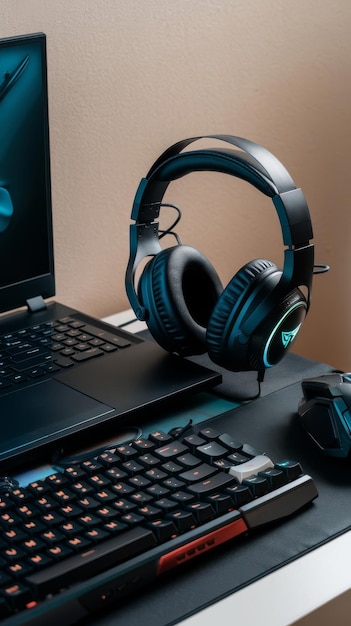
REAL PROJECTS
REAL PROGRESS
Track records from students who transformed their game development skills through structured learning and practical application
RETURN HOMEDEVELOPMENT OUTCOME AREAS
TECHNICAL ABILITIES
- ▶ Proficiency in pixel art creation and animation
- ▶ Understanding of retro game mechanics
- ▶ Ability to prototype games rapidly
- ▶ Knowledge of sprite systems and tilesets
PROJECT OUTCOMES
- ▶ Finished games suitable for portfolios
- ▶ Participation in multiple game jams
- ▶ Complete asset packages created
- ▶ Published games on various platforms
CREATIVE CONFIDENCE
- ▶ Increased confidence in game design
- ▶ Improved project scoping abilities
- ▶ Better time management for development
- ▶ Enhanced creative problem-solving
Students develop skills across multiple dimensions—technical proficiency, project execution, and creative confidence. Each area contributes to becoming a capable indie game developer.
DEVELOPMENT METRICS
PROGRESS INDICATORS
SKILL DEVELOPMENT
PROJECT COMPLETION
LEARNING APPLICATION SCENARIOS
CHALLENGE
Student with programming background but no artistic experience wanted to create visually appealing retro games. Struggled with sprite design and animation timing.
METHODOLOGY
Applied our 2D Pixel Art curriculum focusing on limited color palettes and grid-based design. Practiced daily sprite exercises and studied classic game references for proportions.
OUTCOME
Developed complete character sprite sheets with walk cycles and action poses. Created a platformer demo with cohesive visual style suitable for portfolio presentation.
CHALLENGE
Artist comfortable with digital illustration but unfamiliar with game development workflows. Projects remained incomplete due to scope management issues.
METHODOLOGY
Enrolled in Game Jam Development course emphasizing rapid prototyping and feature prioritization. Participated in multiple timed development exercises to practice finishing projects.
OUTCOME
Successfully completed three game jam entries within course timeframe. Developed reliable workflow for scoping projects and meeting deadlines while maintaining quality standards.
CHALLENGE
Hobbyist developer using modern engines wanted to create authentic retro experiences. Lacked understanding of classic console limitations and programming patterns.
METHODOLOGY
Studied through Retro Game Programming curriculum covering NES-style constraints and tile-based systems. Implemented classic patterns like scrolling engines and boss behaviors.
OUTCOME
Built authentic shoot-em-up with period-accurate sprite limitations and collision systems. Gained understanding of optimization techniques that improve performance in modern engines.
These scenarios demonstrate how our methodology adapts to different starting points and learning needs. Each student's journey involves applying course concepts to their specific development goals.
TYPICAL DEVELOPMENT PROGRESSION
FOUNDATIONS
Learning fundamental techniques, creating first sprites, understanding basic game mechanics. Progress feels gradual as core concepts are established through practice exercises.
APPLICATION
Applying learned techniques to small projects, experimenting with different styles, building confidence through repetition. Skills begin connecting into cohesive workflows.
CREATION
Developing complete game projects, participating in jams, creating portfolio pieces. Noticeable improvement in speed and quality as techniques become second nature.
REFINEMENT
Polishing projects for publication, developing personal style, planning larger games. Continued practice leads to consistent output and professional-quality results.
Progress happens incrementally through consistent practice. Early stages focus on skill building, while later phases emphasize applying those skills to complete projects. Individual timelines vary based on prior experience and practice commitment.
SUSTAINED DEVELOPMENT CAPABILITIES
CONTINUED PRACTICE
Skills developed through courses become foundation for ongoing game creation. Students continue participating in game jams, developing personal projects, and refining their craft beyond course completion.
The techniques learned remain applicable as development tools and platforms evolve. Pixel art principles and retro game patterns translate across different engines and technologies.
PORTFOLIO GROWTH
Projects created during courses form initial portfolio entries. Students expand these portfolios with additional games, demonstrating skill progression and creative development over time.
Many students pursue indie game publishing, join development teams, or offer freelance game art services using skills acquired through our curriculum.
BUILDING ON FOUNDATIONS
The development journey extends beyond course completion. Students gain frameworks for self-directed learning, project management, and continuous skill improvement.
Results compound as developers build on established foundations, creating increasingly ambitious projects while maintaining the retro aesthetic and design principles learned through our courses.
SUSTAINABILITY FACTORS
PRACTICAL METHODOLOGY
Our curriculum emphasizes hands-on project work over theoretical concepts. Students learn by creating actual games, establishing workflows that continue serving them after courses end.
SKILL TRANSFERABILITY
Techniques taught apply across different game engines and platforms. Pixel art principles and retro programming patterns remain relevant as technology advances and tools change.
COMPLETION HABITS
Emphasis on finishing projects builds habits that persist beyond course timeframes. Students develop the discipline needed to see games through from concept to publishable state.
Results last because our approach focuses on developing fundamental capabilities rather than teaching specific tools. Students gain understanding they can apply to new challenges throughout their game development journeys.
DEMONSTRATED EFFECTIVENESS IN INDIE GAME EDUCATION
PixelStudio's track record in indie game development education reflects our focus on practical skill-building and project completion. Since October 2024, over 200 students have progressed through our pixel art, game jam, and retro programming courses.
Our methodology emphasizes hands-on learning through actual game creation. Students work on real projects throughout their courses, building portfolios while developing technical abilities. This approach produces tangible outcomes—completed games, finished sprites, and playable demos.
The combination of structured curriculum and project-based learning addresses common obstacles in indie development: scope management, technical execution, and maintaining momentum through completion. Students learn workflows that extend beyond course timeframes.
Located in Tokyo's indie gaming community, we bring direct experience from commercial game development and jam participation to our teaching. Our instructors work actively in the field, ensuring curriculum reflects current practices and realistic development challenges.
Results vary based on individual commitment and prior experience, but our completion rates and student progression metrics demonstrate the effectiveness of combining technical instruction with practical application. Students gain capabilities they can build upon throughout their development journeys.
START YOUR DEVELOPMENT PROGRESSION
Join students who are building game development skills through structured courses and practical projects
CONNECT WITH US